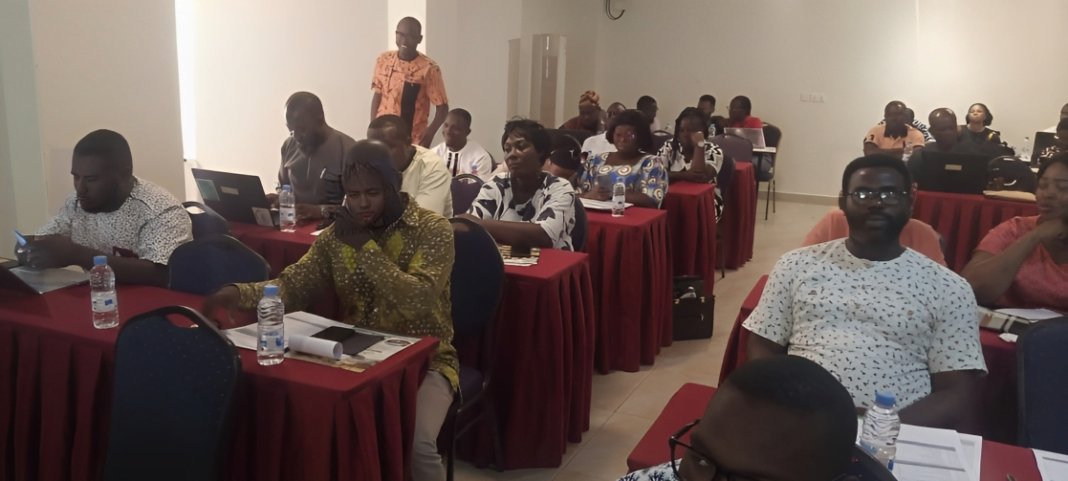The Ghana Statistical Service (GSS) in collaboration with the United Nation Population Fund( UNFPA) has trained some selected journalists and media practitioners in Northern, Upper East, Upper West and Bono East Regions on population issues. The three-day training was to ensure that journalists understand population issues so as to bring out the pertinent information pertaining to population issues in the country.
According to the director in charge of regional officers, Emmanuel George Osei, his outfit has identified some inaccuracies and misleading reportage from some media outlets on population issues which did not communicate the relevant information to the audience.
Mr. Osei encouraged media practitioners to pay attention to details when reporting population issues. This will ensure accuracy since the GSS has indicators that direct responses from the populace.
Speaking to journalists shortly after the training program, Mr. Osei admonished journalists to go beyond reporting the statistics presented by GSS to uncovering the possible causes and consequences of the statistics on the society.
He said ” we contracted someone to do a Media scan. On that Media scan, we realised that most of the reportage by these media men will always quote the statistics that had come out of Ghana Statistical Service and other research institutions that undertake research. We realised that the causes of such issues and the consequences of such issues are mostly not in the reportage. For just the statistics, people will not understand the details. We are talking about leaving no one behind, it means that we get to know of the causes and consequences of such issues. For example; if you take the issue of child marriage, we will come out with 50 children having been given to marriage but then what are the causes? What are the consequences?”
The program analyst for Population and Development at UNFPA, the main financier of the program Mutaru Iddrisu Goro said UNFPA in its research on Media reportage on population revealed some gaps in their reports hence the need to partner GSS to train journalists on population issues.
“We conducted some research on Media coverage on population issues last year in the country, we noticed that it was tilted to only maternal health issues. There were no child health issues, no family planning issues. We noticed that media persons do not have strong interest in the areas of health unless what is prominently discussed. That was what informed us to do this training and we are encouraging you to carve a niche for yourselves”.
Mr. Goro implored journalists to do evidence and results based reporting by adding figures to their reports which make it more credible.
He said ” the essence of this program is very key to UNFPA and its partners. Our work is based on evidence. We noticed that media reportage, sometimes there is no evidence in the reports and sometimes there are misinterpretations of population issues. So we have taken the opportunity to strengthen the capacity of the media in the technical areas of population issues. We have done that in Accra and now we have come to the north to build your capacity to understand population issues to be able to communicate well so that when you are reporting, you report on results based, you back your reports with figures that will give you credibility.”
The training which was held in Tamale had participants being journalists from selected media houses in the Northern, Bono East, Upper East and Upper West Regions. Official from Ghana Statistical Service, Staff and focal persons from United Nation Population Fund( UNFPA).
The Northern regional chairman of Ghana Journalists Association (GJA) Yakubu Abdul Majeed on behalf of the participants expressed appreciation to the organisers for opening their eyes to pertinent issues on population and promised to use the knowledge gained in reporting issues relating to population accurately as required.
Source: A1radioonline.com|101.1MHz|Samuel Adagom|Ghana


